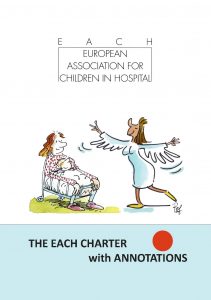
The newly published Kinship Care Statistics from Scotland’s Census 2022 reveal a troubling truth: of the estimated 12,800 children living in kinship care across Scotland, two-thirds are in informal arrangements—meaning they are cared for by relatives or close family friends without formal recognition or support from the state.
These informal carers—often grandparents, aunts, uncles, or siblings—step in during times of crisis, yet many receive no financial support, no training, and no access to the services available to foster carers. They are expected to carry the same responsibilities with far fewer resources. The data also shows:
- 15% of children in kinship care have a long-term health condition or disability.
- 3.6% of children aged three or over are acting as unpaid carers.
- 44% live in social rented housing, highlighting the economic strain on kinship families.
Commenting on the release of the report Helen Bauld, Training, Programmes and Funding Manager with Children’s health Scotland said:
Although Children’s Health Scotland welcomes the newly published Kinship Care Statistics, which offer a clearer picture of kinship families across the country, it is clear that more needs to be done. Kinship carers are often the unsung heroes in a child’s life. They step in with love and commitment, but without the support systems that foster carers receive. We must do better—these families deserve recognition, resources, and respect.
Thanks to funders, Children’s Health Scotland has been supporting kinship carers for over 15 years, offering:
- Workshops and training on trauma, mental health and wellbeing, and healthcare rights.
- Bear Big Adventure Days for kinship families to connect and recharge.
- 1:1 support and advocacy through our Care Experienced Service.
We call on the Scottish Government to close the gap between support for foster and kinship carers, and to ensure consistent, transparent funding and services for all kinship families—formal or informal.
Kinship carers are doing the work. It’s time they got the support.
To learn more about our services or to book a workshop, visit childrenshealthscotland.org.
Notes
- The Kinship Care Statistics are derived from Scotland’s Census 2022, published by the Scottish Government. The data includes both formal and informal kinship care arrangements.
Source: gov.scot - The figure of 12,800 children in kinship care includes approximately 4,226 in formal placements and 8,600 in informal arrangements, based on derived variables from Census data.
- Previous years’ statistics (e.g. 2021) reported around 4,000 children in formal kinship care, indicating a rise in informal arrangements.
- The disparity in support between foster and kinship carers is documented in the Scottish Recommended Allowance (SRA) Review, which found that kinship carers were more likely to receive below the recommended rate and that local authority practices varied widely.
Source: Scottish Government SRA Review
